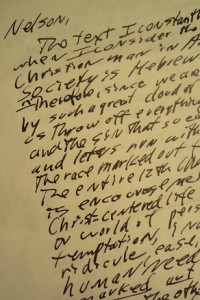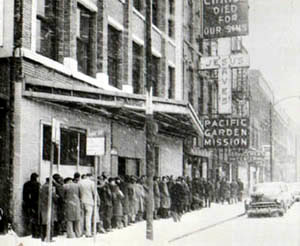I owe my friend Connie a phone call. She left a voice mail yesterday, and I haven’t gotten back to her yet, but that doesn’t mean I haven’t been thinking about her.
She and I have been friends for sixty-plus years, having grown up together at Moody Church. Among her many talents is being a fabulous cook. Since I’m not a very good one, I’ve always appreciated her ability in the kitchen and have gobbled up many a meal from her hands.
But one particular incident will always come to mind when I think of Connie. It involved food but no cooking, and it happened 16 years ago. On a frosty morning in 1994, she stepped through my kitchen door carrying two overloaded grocery bags.
Wiping the dishwater from my hands, I said, “What’s all this?”
“Never mind,” she said. “I’ll be right back.”
I followed her outside, oblivious to the winter winds, questioning her as I went. “What’s going on?” But I stopped short when I saw eight more big brown bags lined up in her car.
“The Lord told me to do something,” she said, “and I’m just doing what I’ve been told. You’re getting your kitchen stocked.”
“Oh no,” I said. “You can’t do that!”
But she deflected my objections. “Don’t get in the way of a blessing.”
Our family had been struggling financially for several years, and for me as a stay-at-home mom of seven, panic was never far away. This day a couple of my cabinet shelves were completely empty, shelves that once couldn’t hold their bounty.
“What do you mean,” I said, “by the Lord telling you what to do?”
“In Bible study this week one verse mentioned helping those in need. I knew it was God’s message for me to help you. So don’t object. I’ve gone over your head and gotten special permission.”
My eyes filled and I threw my arms around this true friend. I hadn’t told her of my rising fear over the near-empty refrigerator or mentioned that our dinners had boiled down to a choice between pancakes and soup. Yet God had, through his Word, given Connie specific instructions. Best of all, she’d obeyed. Knowing her family was also on a strict budget, I appreciated her gifts even more.
It’s difficult to accept charity. Giving is much easier than receiving. As I stood in my replenished kitchen that afternoon feeling guilty for accepting Connie’s groceries, God reminded me that charity is just another word for love. Connie had demonstrated godly love, which humbled me and simultaneously lifted me up.
Later that same day my four year old (who had witnessed the food delivery) made a wise assessment of what had happened. “Your friend sure shares good, Mom.”
I had to agree. Connie had stocked our shelves, lifted my spirits, impacted a four year old, and gained another star in her heavenly crown.
I think I’ll give her a call.
“Don’t forget to do good and to share with those in need. These are the sacrifices that please God.” (Hebrews 13:16)





